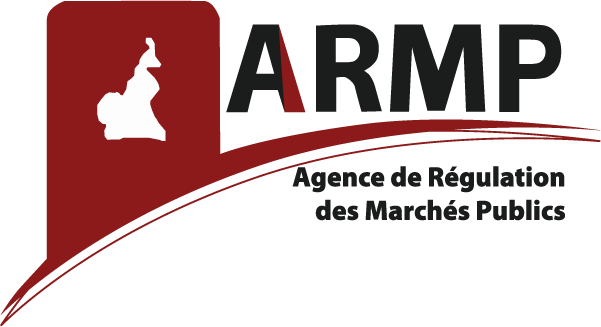The National Community-driven Development Program (PNDP), whose third phase kick started on April 2016, is one of the operational frameworks of the Growth and Employment Strategy Paper put in place by the Cameroon Government with the support of several technical and financial partners. Through such a tool, the Cameroon Government intends to provide local governments with skills and necessary means likely to enable them to set up riches and employment-generating conditions and opportunities for the youths, more specifically with a view to enhancing the living conditions of the most disadvantaged populations.
Since 2004, PNDP had been gradually implemented nationwide in three successive phases of four years each. During its first implementing phase, it did cover 151 councils out of the 6 regions, namely: the Adamawa, Centre, Far-north, West, North and South regions. In its second implementing phase, PNDP covered the 329 councils mostly located in the 10 regions. It should be emphasized that during its two first phases PNDP did benefit, in addition to the internal public resources (PIB, HIPC), from external public fundings governed by conventions or special agreements entered into with the World Bank (IDA), the French Cooperation (Debt Relief Development Contract or C2D) as well as with the German Cooperation (KFW). To all these fundings, should be added those stemming from the beneficiaries under the framework of their contributions for the achievement of their micro projects.
Following the first two phases deemed satisfactory, financial partners such as the World Bank have agreed to allocate a new Credit aimed at financing the third phase of the Program that kick started on April 2016 and is expected to be rounded up at the end of 2019. This 3rd phase which is called upon to be considered as that of the consolidation of the vested interests, intends therefore not only to cover the whole of the 360 councils in Cameroon, but equally to provide support to the ongoing decentralization process, thereby laying special emphasis on the improvement in terms of management of local public funds. One of the main challenges to be met during this phase therefore dwells on the sustainability of the Program’s vested interests.
Actions carried out under PNDP can be broken down into three main components as follows: (i) support to local development; (ii) support to councils under the decentralization context; and mostly (iii) aspects such as coordination, management, monitoring and evaluation, and communication.
The main beneficiaries are undoubtedly the 360 councils and their grassroots communities whose target groups are: (i) the mayors and municipal councilors (ii) the council revenue collectors and councils’ financial agents (iii) the executives in charge development at the local level; (iv) the villages-based Consultation Committees. Other stakeholders involved in the implementation of the Program shall be referred to as the State’s external services, the civil society’s organizations that benefit from capacity-building initiatives, likely to enable them to provide an appropriate support to councils as well as to their communities so as to allow them to play a major role as far as the development of their locality is concerned.
The Call for Expression of Interest (AMI) has as objectives to:
• Inform eligible Consulting firms (BET) /Consultancies to express their interest in carrying out a qualitative and/or quantitative diagnostic of the impacts of all these achievements on PNDP’s beneficiaries;
• Indicate and provide pre-selection criteria to such Consulting firms and/or Consultancies ;
• Short list Consulting firms and/or Consultancies.
Consultants shall be required to meet the following pre-selection criteria:
• Be a national or an international Consulting firm and /or Consultancy;
• Have a sound experience as far as evaluations are concerned ;
• Show proof of a specific experience as far as quantitative and qualitative studies are concerned ;
• Have at one’s disposal a team of multi-disciplinary experts with proven skills.
English or French shall be considered as the working language.
With a view to short-listing consultants, PNDP’s National Coordinator hereby invites eligible candidates to express their interest, notably to provide the above-mentioned services. The national and/or international Consulting firms/Consultancies interested must therefore provide information (leaflets, brochures, etc.) indicating that they are capable of executing the required services.
Such a request for expression of interest shall comprise the following documents:
• A letter of expression of interest addressed to the National Coordinator of PNDP ;
• The justification of the Consultant’s legal status ;
• The supporting documents likely to check the above-mentioned pre-selection criteria. Any pertinent information deemed unjustified shall not significantly affect the pre-selection process.
A shortlist of consultants (Consulting firms/Consultancies) shall be drawn up based on the procedures laid down in the convention arrived at both with the French Development Agency (AFD) and the Manual of the Administrative and Financial Procedures of PNDP.
The said counterparts made up of (one original and six copies) should be deposited at the National Coordination Unit of PNDP, located at Nouvelle Route Bastos, opposite UNDP (PNUD) latest on 2nd June 2017 at 03:00 p.m. prompt ( local time).
Interested Consultants may obtain additional information as concerns this expression of interest at the following address:
PNDP’s National Coordination Unit, located at Nouvelle Route Bastos, opposite UNDP (PNUD). P.O. Box 660 Yaounde, Cameroon. Phone N0s. 222 2136 64/222 21 36 65/222 21 36 68; E-mail: pndp@pndp.org/pndp_cameroun@yahoo.fr Website: www.pndp.org ant during the following working hours: from 08:00 a.m. to 05: 00 (local time).

